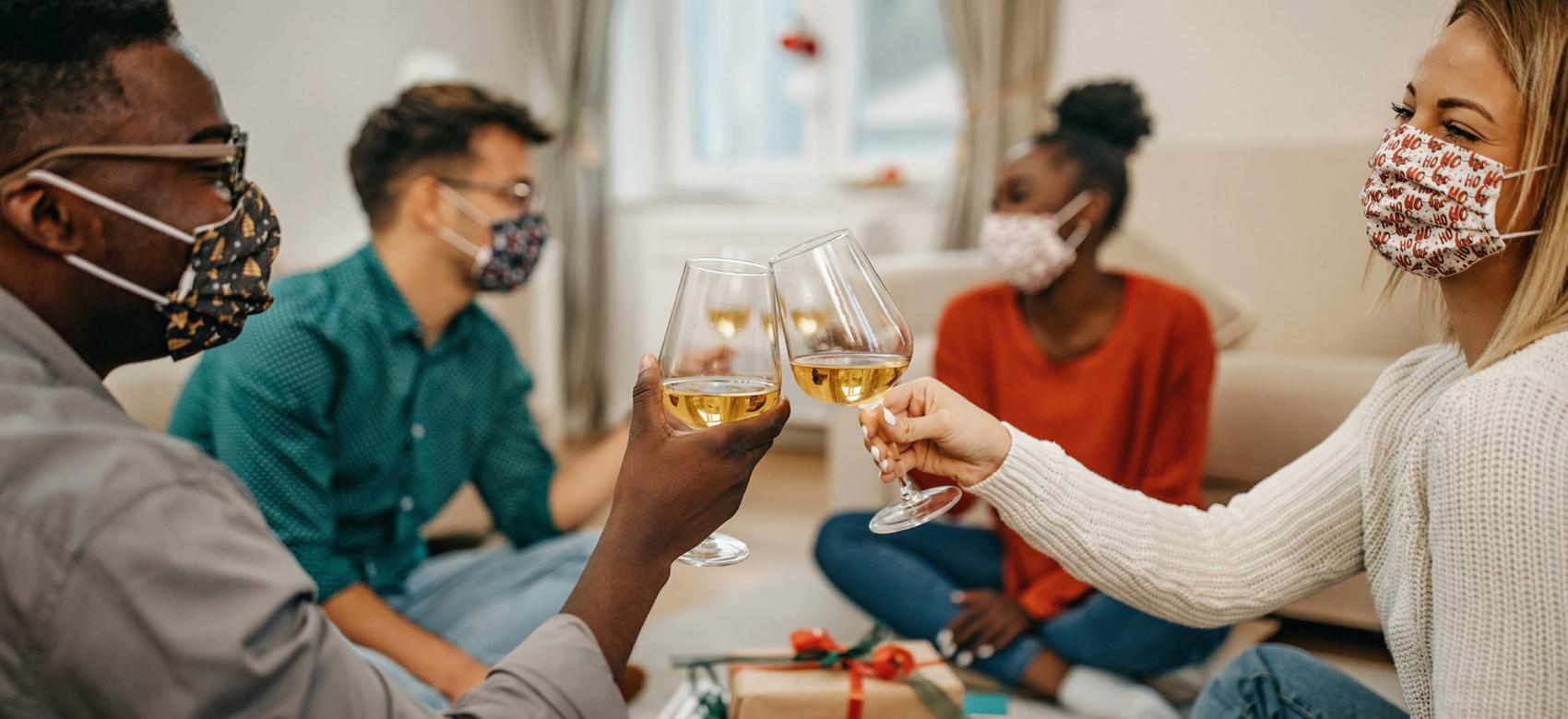Spread cheer, not COVID: Tips for staying safe this holiday season
by Brett Goldhawk

As family and friends gather to celebrate the holidays, the pandemic remains the No. 1 public health concern. Devon Greyson, assistant professor at UBC’s School of Population and Public Health, answers some common questions about how to stay safe and healthy this holiday season.
How can we reduce the risk of infection during gatherings at home?
Because COVID spreads through shared air, the safer choice is to eat outside if possible or to open windows for ventilation if indoors. If you stay inside, wearing masks when not actively eating reduces risk, especially if anyone is at higher risk of spreading or contracting the virus such as unvaccinated people, seniors or people with medical conditions that make them more vulnerable.
How can I be a good host of a holiday gathering during the pandemic?
If you’re hosting, remind your guests to stay home if they’re experiencing symptoms such as coughing or fever. Also let guests know ahead of time about safety measures you expect, such as masks, and to bring warm clothing if you plan to open windows or eat outside. Don’t assume everyone is following the same rules you are.
How can I be a good guest?
Simply put, if you have any symptoms, you should stay home. If you plan to travel, it’s time to start limiting your non-essential activities such as parties or dining out, to limit the risk of bringing COVID home for the holidays.
Can you catch COVID from food or drinks, like a bowl of eggnog?
Because the virus is airborne and doesn’t last long on surfaces, there’s no known risk of catching COVID from prepared food like a turkey or other meals. But you could potentially catch COVID from sharing silverware or a glass or bottle.
Does COVID travel on packages, including gifts ordered online?
The risk of contracting COVID by touching things is very low, so while we should always wash hands before eating or touching faces, we don’t have to worry about quarantining or wiping down packages we receive in the mail or as gifts.
If I’m flying during the holidays, what can I do to stay safe?
When you’re on a plane, you should always wear a high-quality mask as much as possible. If your flight is short enough that you don’t have to eat or drink, it’s safest to keep your mask on the entire time. The same is true for the airport. If you plan your meals accordingly, you may not need to eat in the air or at the terminal.
Any final tips for a COVID-safe holiday?
Anyone who is not vaccinated should get the vaccine. When making plans, make sure you pay attention to local health authorities as they will update guidelines for your area. While many people are looking forward to a more normal holiday season this year, it’s still safer to keep get-togethers on the small side. Remember that medically vulnerable people may still need to limit socializing this year so reach out to those who are feeling isolated during a time when we traditionally come together.
Brett Goldhawk is a writer with UBC Faculty of Medicine. This article was published on December 14, 2021.
This article is republished from UBC Faculty of Medicine. You can read the original article here. If you are interested in republishing this article, please contact UBC Faculty of Medicine.


